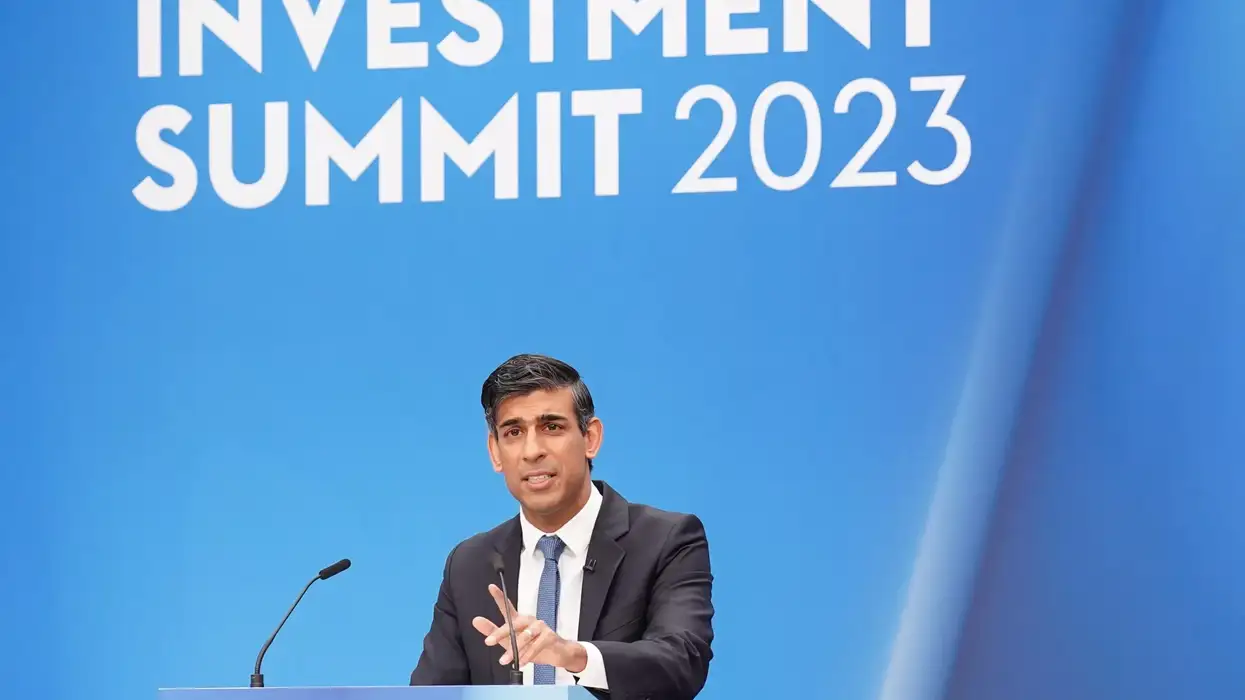Prime minister Rishi Sunak unveiled on Monday (27) that the world's top investors have pledged £29.5 billion in new projects and capital, as a “huge vote of confidence” in the UK economy.
Sunak, who welcomed CEOs of some of the world's leading businesses for a Global Investment Summit at Hampton Court Palace in London, said that thousands of jobs will be created across the country, including tech, life sciences, renewables, housing, and infrastructure.
Blackstone, Goldman Sachs, JP Morgan Chase, Barclays, HSBC, and Lloyds Bank are among those represented at the “British Ideas – Past, Present and Future” entitled summit, to be followed by a reception at Buckingham Palace hosted by King Charles III.
“Today's investments, worth more than £29 billion, will create thousands of new jobs and are a huge vote of confidence in the future of the UK economy,” said Sunak.
“Global CEOs are right to back Britain – we are making this the best place in the world to invest and do business...Attracting global investment is at the heart of my plan for growing the economy. With new funding pouring into key industries like clean energy, life sciences and advanced technology, inward investment is creating high-quality new jobs and driving growth right across the country,” he said.
Downing Street points out that the new wave of investments come after Chancellor Jeremy Hunt unveiled the “biggest business tax cut” in modern history at last week's Autumn Statement with a permanent extension of capital allowances, £4.3 billion of business rates support and a £7 billion Growth Fund.
“The numbers speak for themselves: we have the third highest levels of inward investment in the world at $2.7 trillion, we're number one in Europe for new investment projects, and last year alone we created 107,000 jobs through inward investment,” said UK Business and Trade Secretary Kemi Badenoch, who opened the summit with Sunak.
“People want to invest in a country with vision, ideas and growth, and our Summit showcases all these qualities and proves why the UK is the most exciting and innovative place in the world to invest,” she said.
According to the government, the summit will also see billions for the country's burgeoning tech sector, which last year became the third in the world to be worth $1 trillion.
Following the recently organised AI Safety Summit, Microsoft has pledged £2.5 billion to build critical AI infrastructure, bringing more next-generation AI data centres and thousands of graphic processing units to the UK. In the field of renewables, clean energy-tech company Aira will be investing £300 million into heat pump rollouts, new jobs, and upskilling.
“Aira's £300 million investment in the UK heat pump industry and creation of 8,000 jobs is a helpful contribution to our green ambitions, offering a cleaner heat source for our homes and growing the economy. Families will benefit from lower heat pump prices with more trained installers and £7,500 grants through one of the most generous schemes in Europe,” said energy security secretary Claire Coutinho.
(PTI)




